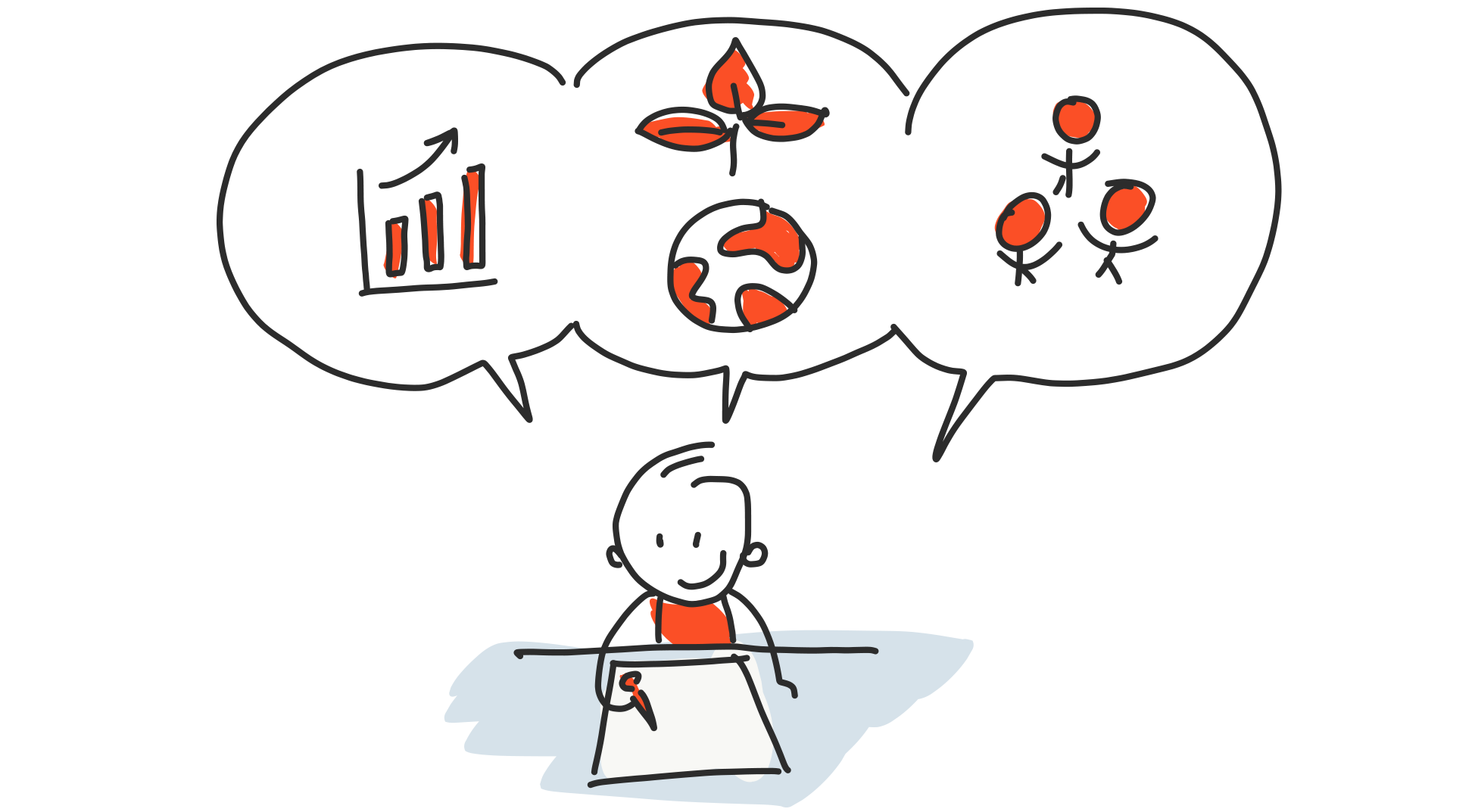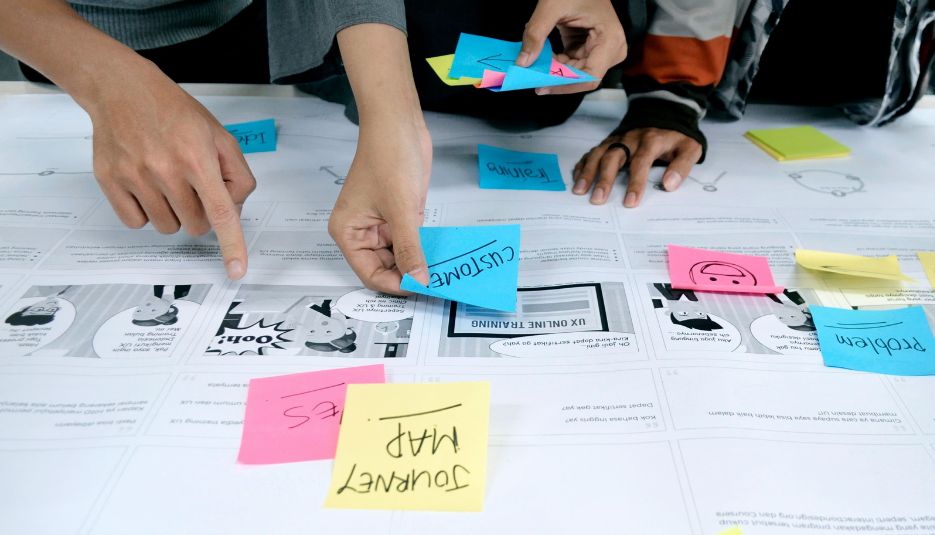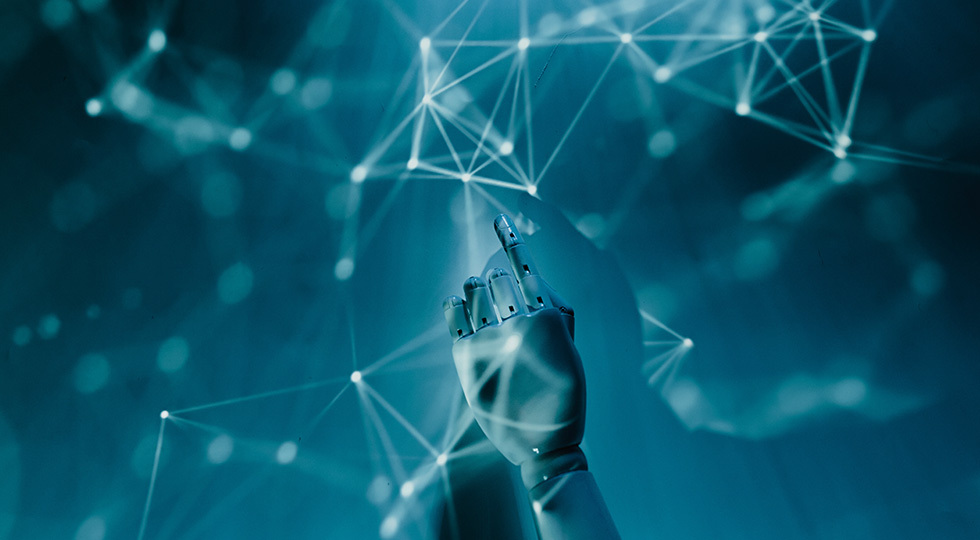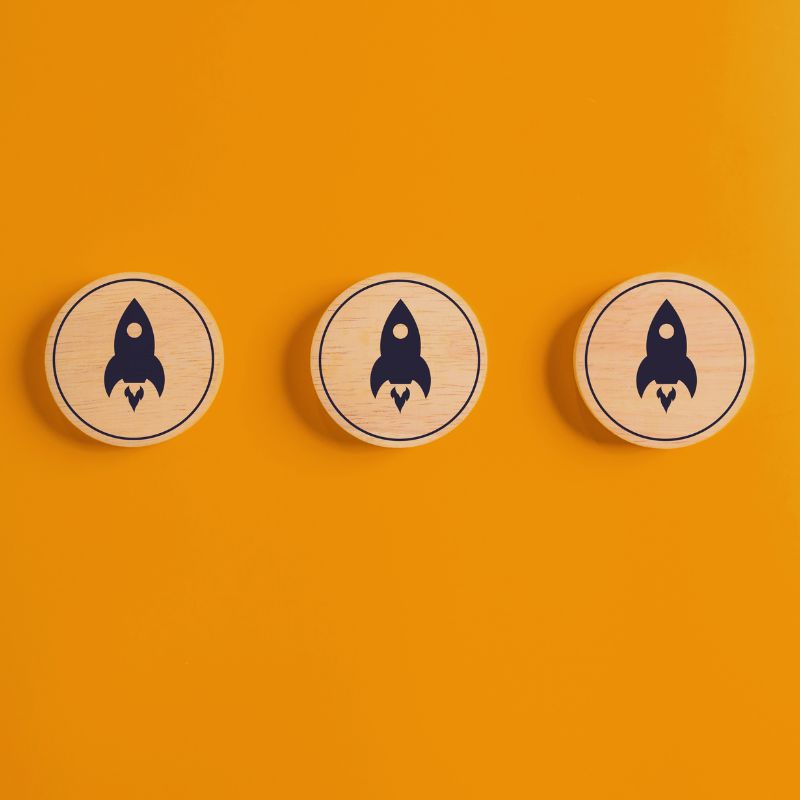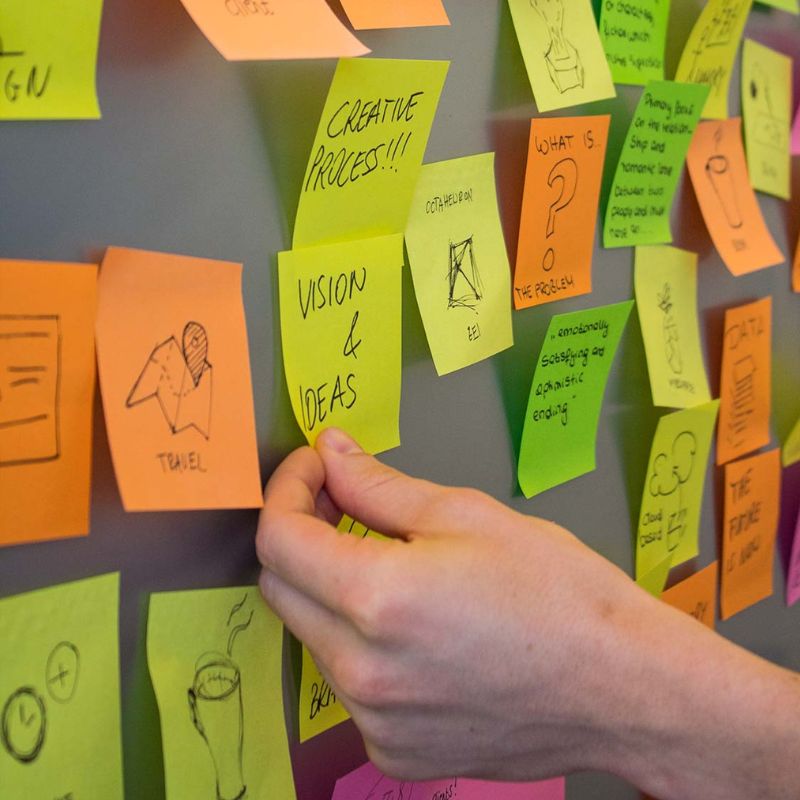10.11.2020
Sustainable UX: Alter Wein in neuen Schläuchen?
Usability und User Experience (UUX) zahlen in eine effiziente Entwicklung von Produkten und Services sowie eine effiziente Nutzung dieser ein. Doch ist positive User Experience (UX) somit automatisch nachhaltig? Wir sagen: Nein, für Sustainable UX braucht es mehr! Wir zeigen, wie digitale Lösungen Nutzern nicht nur eine positive UX bieten, sondern sich auch wertschöpfend auf Umwelt und Gesellschaft auswirken können.
Verbraucher fragen immer häufiger nachhaltige Produkte und Dienstleistungen nach. Aber was bedeutet das genau? Viele verbinden Sustainability vorrangig mit ökologischen Aspekten wie weniger Produktion und Konsum, einer ergiebigen Nutzung von Material und Energie oder naturverträglichen Stoffkreisläufen. Dabei ist der Umweltaspekt zwar die geläufigste und auch eine wichtige, aber nicht die einzige Facette von Nachhaltigkeit.
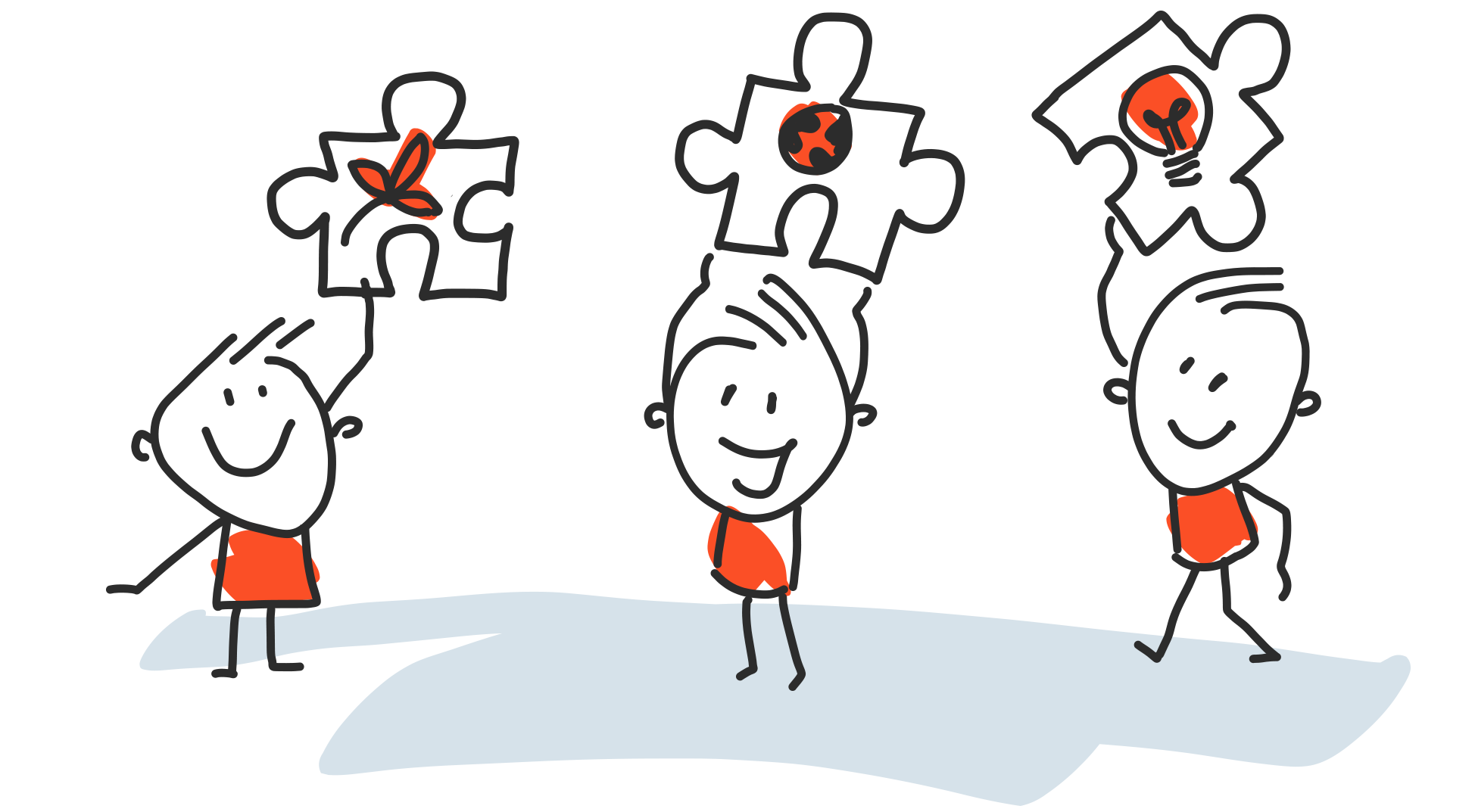
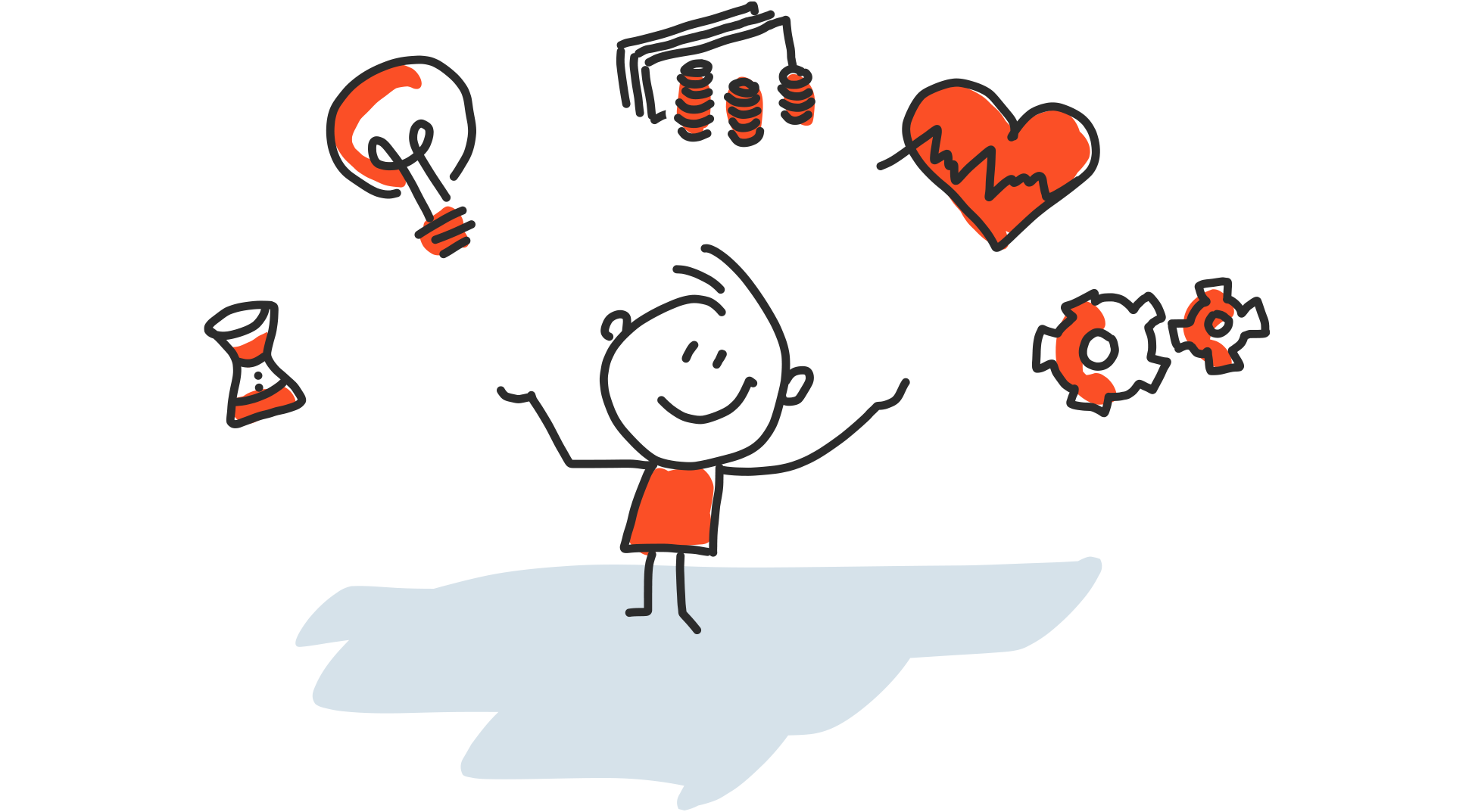
Im Bereich UUX spielen Nachhaltigkeitsaspekte von Beginn an eine Rolle – mit Themen wie Effizienz, Zugänglichkeit für verschiedene Nutzergruppen und Endgeräte oder Vermeidung von Stress und anderen Gesundheitsrisiken bei der Bedienung. Damit sorgt UUX bei der Entwicklung von Produkten und Dienstleistungen seit den Anfängen für mehr Nachhaltigkeit. Denn: Effiziente Systeme bedeuten weniger Zeit- und Energieverbrauch, weniger Supportkosten, sinnvolle Features und weniger erkrankte Mitarbeiter.
Ist Sustainability im Bereich UUX also nur ein neues Schlagwort? „Sustainable UX“ nur alter Wein in neuen Schläuchen? Nein! Denn nicht alles, was effizient ist und eine positive User Experience hat, ist automatisch auch nachhaltig. So können Systeme trotz positiver UX gesellschaftlichen und persönlichen Schaden anrichten, Personengruppen diskriminieren, umweltschädliches Verhalten erhöhen oder als positives Erlebnis bewusst so gestaltet werden, dass Nutzer möglichst viel Zeit vor technischen Geräten verbringen.
Die Perspektive „Beyond UX“
Was braucht UUX als Disziplin, um nachhaltige Produkte und Services zu schaffen? Unsere Antwort: eine bewusste Perspektive „Beyond UX“. Eine Perspektive, die ihren Blick über einzelne Nutzergruppen hinaus richtet und ethische Fragestellungen und Werte berücksichtigt. Die ökonomische Effizienz mit sozialer und ökologischer Verträglichkeit vereint.
Soweit die Theorie. Aber was heißt das praktisch? Das zeigt das Beispiel des Forschungsprojekts WiMi-Care. Mit Partnern untersuchten wir dabei den Einsatz von Servicerobotern in der Pflege. Die zentrale Frage hierbei: Wie können Serviceroboter Pflegekräfte im Arbeitsalltag entlasten? Doch für einen erfolgreichen und sozial verträglichen Einsatz mussten auch weitergehende Aspekte beachtet werden: Wie muss der Einsatz und die Interaktion gestaltet werden, dass sich Pflegekräfte neben den Robotern nicht obsolet fühlen – sondern sich stattdessen besser auf zentrale Aufgaben konzentrieren können? Oder: Wie gestaltet man eine würdevolle Interaktion von Robotern mit pflegebedürftigen Menschen, die Teilnahme und Selbstbestimmung erhöht und gleichzeitig die Privatheit nicht verletzt?
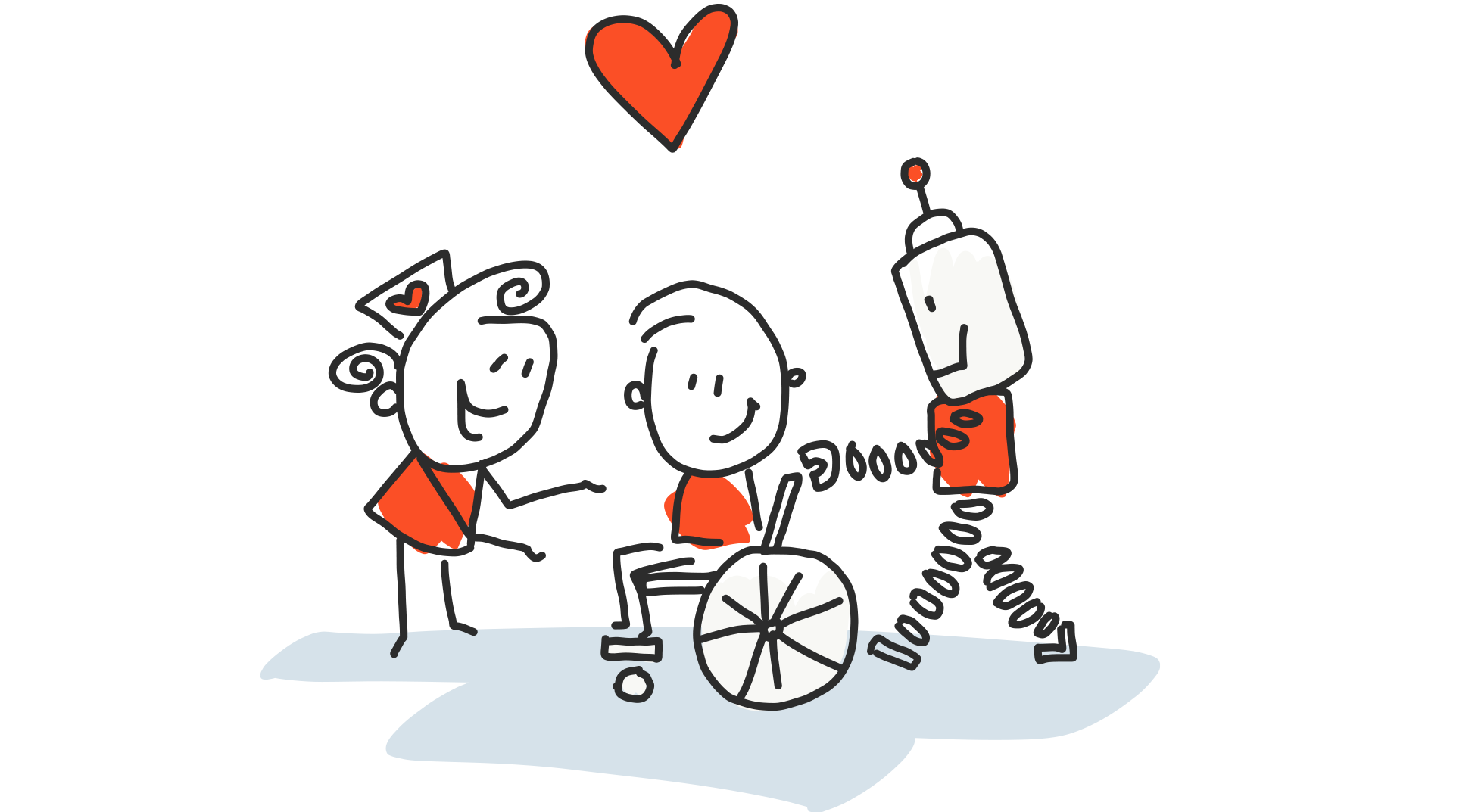
Die Berücksichtigung umfassend nachhaltiger Fragestellungen klingt nach Aufwand und Kosten für Unternehmen, die neue Produkte und Dienstleistungen entwickeln wollen. Warum lohnt es sich dennoch, in eine Perspektive „Beyond UX“ zu investieren? Unternehmen, die auf Sustainable UX setzen, profitieren mehrfach: Sie werden effizienter und sparen langfristig Entwicklungs-, Schulungs- und Supportkosten. Sie kommen den steigenden Anforderungen von Verbrauchern und Politik im besten Fall zuvor, nutzen nachhaltige Produkte als Wettbewerbsvorteil und entwickeln Zukunfts- und Innovationsfähigkeit in einer sich schnell verändernden Welt. Das Einbeziehen ethischer Fragen und Werte von Anfang an sichert zudem eine hohe Akzeptanz neuer Produkte, stärkt die Kundenbindung und ermöglicht es werteorientierten Unternehmen ihr Wertziele in die Produktentwicklung einzubringen.
Nachhaltig und zukunftsfähig mit den 6Rs
Let’s get real. Wer konkret wissen möchte, wie wir mit Unternehmen digitale Produkte und Services „Beyond UX“ entwickeln und so von den Vorteilen von Sustainable UX profitieren können, findet erste Antworten mit unseren „6Rs“(Rethink, Research, Reflect, Reduce, Repair und Reuse). Diese machen bestehende Nachhaltigkeitsprinzipien für die digitale Welt greif- und umsetzbar.
Mehr über unsere 6Rs erfahren
Fazit
UUX zahlt aus ökonomischer Sicht seit Jahren in das Thema Nachhaltigkeit ein. UUX liefert aber nicht zwingend sinnvolle Produkte und Technologien für Ökologie und Gesellschaft. Sustainable UX führt erst dann zu einer Win-Win-Win-Situation für Wirtschaft, Umwelt und Gesellschaft, wenn Unternehmen neben Effizienzfragen von Beginn an mögliche negative Effekte auf den Einzelnen oder die Gesellschaft sowie Umweltaspekte in die Entwicklung einbeziehen. Gestalter können und sollten hier Verantwortung übernehmen, indem sie bei der Entwicklung von neuen Technologien, Produkten und Services die richtigen Fragen stellen und ein Bewusstsein schaffen für Effizienz, Nachhaltigkeit, Werte und gesellschaftlichen Mehrwert.
